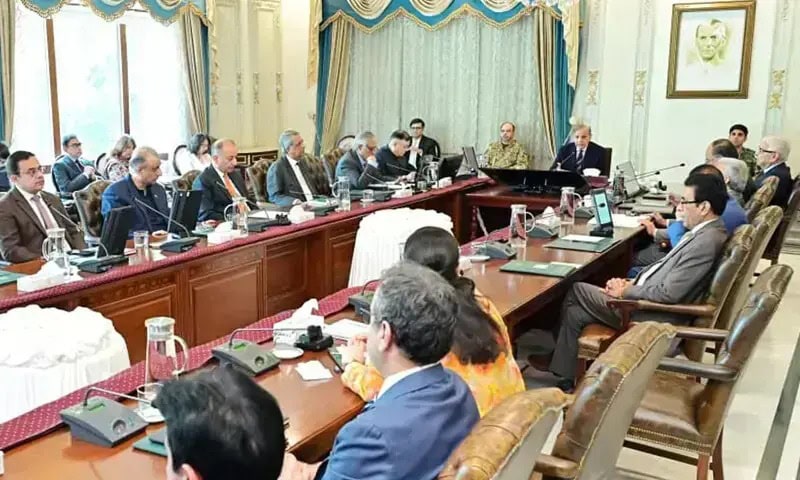ISLAMABAD – The federal cabinet on Saturday approved the 27th constitutional amendment with key reforms.
Prime Minister Shahbaz Sharif chaired the meeting via video link from Baku, Azerbaijan.
Law Minister Azam Nazeer Tarar provided a briefing to the cabinet on the provisions of the amendment. The meeting was attended by various government figures including Defense Minister Khawaja Asif, Minister of Information and Broadcasting Bilal Azhar Kiyani, and others.
The 27th Constitutional Amendment includes a wide range of proposed changes aimed at restructuring Pakistan’s judicial system and enhancing defense coordination.
One of the significant proposals is the creation of a Federal Constitutional Court, along with changes to the transfer of judges and adjustments to Article 243. A total of 46 amendments will be introduced to various sections of the Constitution, covering the functioning of the judiciary and the military.
Additionally, the amendment introduces a significant shift in Pakistan’s military structure. Sources have revealed that the Army Rocket Force (ARFC) will be established as the fourth major armed force, alongside the Army, Air Force, and Navy.
The new structure will give the Chief of Army Staff the title of “Commander of Defense Forces” and centralize the coordination of all military branches under their leadership. The role of Chairman Joint Chiefs of Staff will be abolished, replaced by the new “Commander of Defense Forces.”
The amendment has also paved the way for restructuring the Strategic Plans Division (SPD), which was previously under the Chairman Joint Chiefs of Staff, and now will be integrated into the new Army Rocket Force.
Following today’s approval by the federal cabinet, the proposed amendments will be presented to the Senate for further discussion. A joint parliamentary committee, consisting of representatives from both houses, will review the amendments and present their report. Special representatives will be included in the committee to ensure broad consensus on the changes.
The proposed amendment will now be tabled in Senate where it will be handed over to the relevant standing committee for further consideration.














